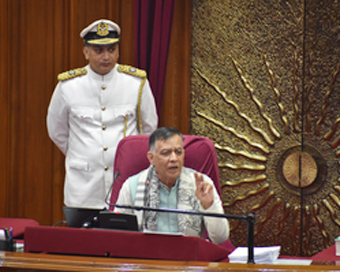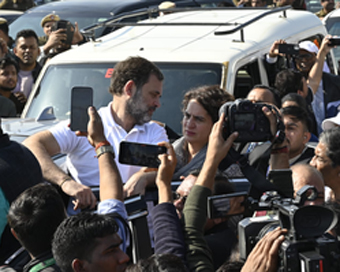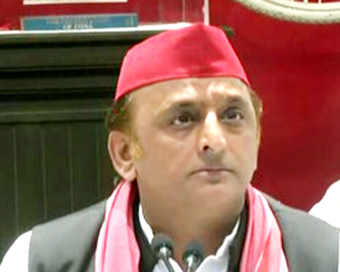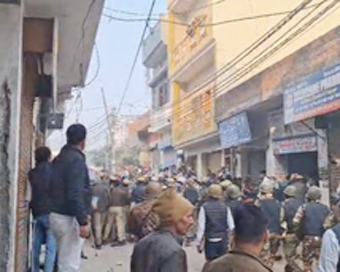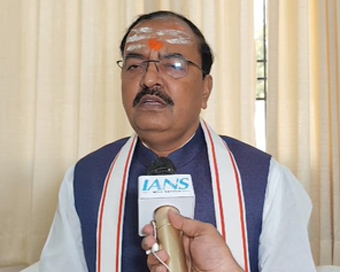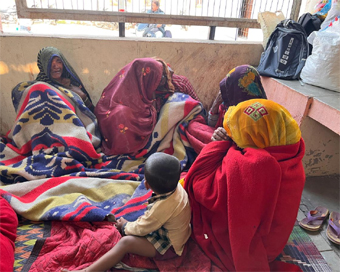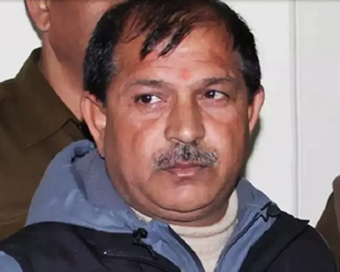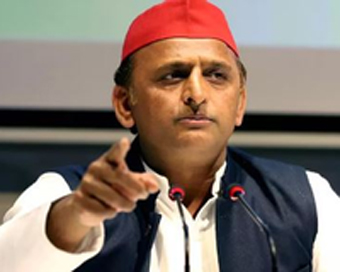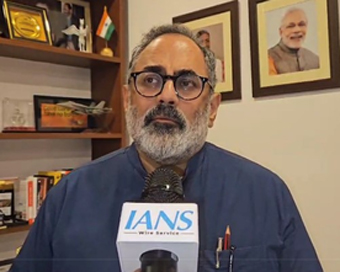| November 25, 2024 | IANS - Sambhal (Uttar Pradesh) |
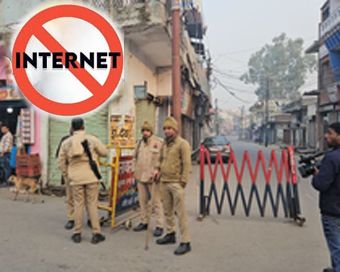
Hours after chaos erupted in Uttar Pradesh's Sambhal on Sunday as a court-ordered survey of the Mughal-era Jama Masjid led to violent clashes between locals and the police, leading to the deaths of four youths, the authorities on Monday imposed strict security measures and enforced prohibitory orders, shut down schools and colleges and suspended Internet services in the area.
Outsiders are prohibited from entering Sambhal till December 1 and no public representatives will be allowed to visit the area and public gatherings have also been banned for now.
According to sources, weapons have been found and confiscated from the homes of some of the 21-odd people who were arrested by the police on Sunday after the violence in the area. There are two women among the 21 people held for the violence. More arrests are likely as police are trying to identify the miscreants with the aid of the CCTV cameras.
The mosque is at the centre of a contentious legal battle over claims that it was built on the site of a Hindu temple.
Police said the violence started when a crowd gathered near the mosque as the survey team, led by an ‘Advocate Commissioner,’ began its work.
The crowd swelled to nearly a thousand people, and they tried to prevent the police from entering the mosque. Some people in the crowd threw stones at the police personnel stationed at the site. The mob also set ablaze over ten police vehicles stationed in the area as a precautionary measure.
The police responded by firing tear gas shells and in the chaos, four youths were killed and as many as 20 police personnel were among the scores of people injured in the violence.
The survey, which began at 7:30 A.M., was part of a process initiated by a petition claiming that a temple once stood in place of the mosque.
Tensions have been simmering in Sambhal since a similar survey was conducted on Tuesday. The petitioners argue that historical texts such as "Baburnamah" and "Ain-e-Akbari" document the destruction of the temple by Mughal emperor Babur in 1529.
Supporters of the survey argue that it is a necessary step in uncovering historical truths, while critics view it as a provocation that violates the sanctity of religious places as upheld by the Places of Worship Act, 1991.
Tweet




